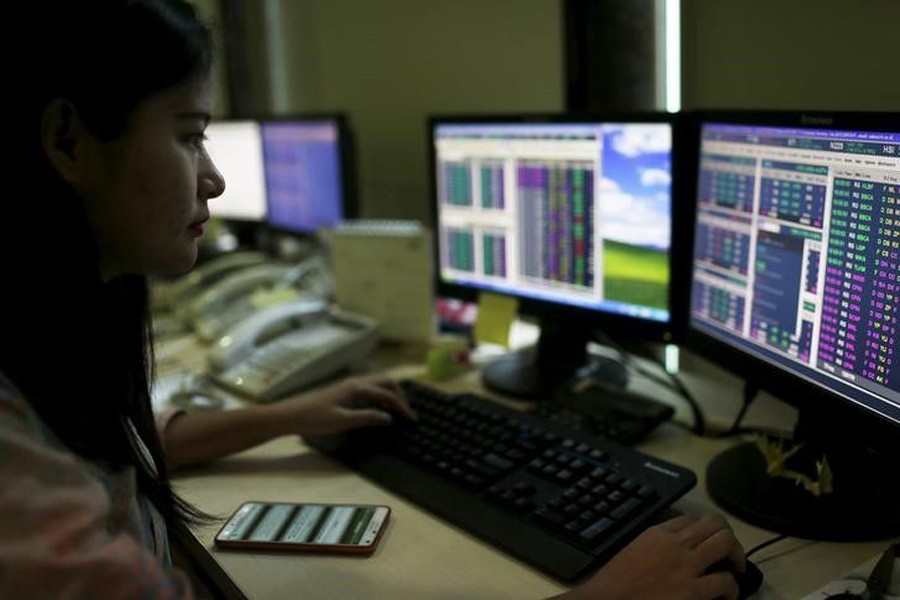Asian share markets pared early losses on Monday as Chinese stocks swung higher for a second session and helped offset geopolitical concerns over Saudi Arabia, Italy and Brexit.
Blue chips in Shanghai climbed 3.5 per cent in early trade there, extending Friday’s bounce on Beijing’s pledge of support for the economy and companies.
That helped E-Mini futures for the S&P 500 halve their initial loss to be down 0.25 per cent. MSCI’s broadest index of Asia-Pacific shares outside Japan turned around to edge up 0.2 per cent.
Japan’s Nikkei was off 0.2 per cent, after being down over 1 per cent earlier, as were South Korean stocks.
This week is the peak period of the US earnings season and companies reporting include Amazon, Alphabet, Microsoft and Caterpillar.
Helped by a strong economy and deep corporate tax cuts, S&P 500 earnings per share are expected to grow 22 per cent in the third quarter, according to I/B/E/S data from Refinitiv.
“The season on an absolute basis will likely wind up being ‘strong’ and the vast majority of companies will exceed consensus expectations,” said analysts at JPMorgan in a note.
“However, headwinds are building at the margin in the form of U.S. dollar strength, supply chain disruptions owing to all the trade uncertainty, and rising costs. Even the mere hint of a turn in profit fundamentals would have severe ramifications.”
The outlook for global growth in 2019 has dimmed for the first time, according to Reuters polls of economists who cautioned that the US-China trade war and tightening financial conditions would trigger the next downturn.
Saudi Arabia remained in the spotlight as Riyadh on Sunday called the killing of journalist Jamal Khashoggi a “huge and grave mistake,” but sought to shield its powerful crown prince from the widening crisis.
On Saturday, US President Donald Trump joined European leaders in pushing Saudi Arabia for more answers after Riyadh acknowledged that the journalist died at the consulate following weeks of denial.
Italian countdown
In Europe, Italy has until Monday to explain to the Commission its breach of rules and faces the rejection of its budget, which may eventually lead to sanctions.
The Italian government expects the European Commission to decide for the first time ever on Tuesday to ask a member state to revise its draft budget, a government source said on Sunday.
Italian bond yields hit their highest level since early 2014 on Friday and the premium investors demand in comparison to German debt is at a five and a half year high.
Italy is expected to be on the agenda when the European Central Bank meets on Thursday. The bank is considered certain to keep policy on hold and likely put off discussion about its reinvestment policy until December.
The euro started the week steady at $1.1511 having bounced from support at $1.1431 on Friday. The dollar recovered form an early dip on the yen to stand at 112.55 and it was little changed against a basket of currencies at 95.704.
Sterling idled at $1.3063 as the market waited for more developments on Brexit.
According to Reuters news agency, Prime Minister Theresa May will tell parliament on Monday that 95 per cent of Britain’s divorce deal has now been settled but will repeat her opposition to the European Union’s proposal for the land border with Northern Ireland.
In commodity markets, gold held steady at $1,227.33 an ounce.
Oil prices were stable on Monday, supported by supply concerns ahead of the start of US sanctions against Iran’s crude exports, but held back by rising drilling activity in the United States.
Brent crude added 10 cents to $79.88 a barrel, while US crude rose 12 cents to $69.24.


